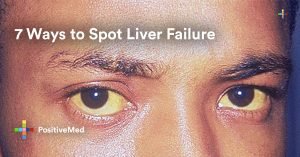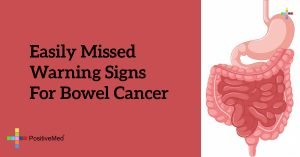
Dear Women! If You Like Caffeine – You Should Know THIS
[nextpage title=”…”]
It should come as no surprise that Americans love coffee. As reported by the U.S. Food and Drug Administration, 80% of adults drink or eat products with caffeine on a daily basis. And on a global level, 90% of people are taking the substance in.

Swollen Breasts
While caffeine consumption is clearly normative, it’s important for women to know that their daily cup of java might be problematic. In fact, one Duke University study found that caffeine consumption can cause the consumer’s blood vessels to dilate. Once this happens, the breasts can become swollen and induce pain. These PMS-like symptoms can detract from one’s sense of ease and physiological equilibrium.
While the idea of experiencing these symptoms every day might sound insane, it seems that women who drink coffee may actually be making themselves susceptible to this type of ongoing discomfort. In fact, the same study which revealed that the caffeine consumption caused unpleasant symptoms demonstrated that women who eliminated the stimulant from their diet experienced less pain.
PMS Symptoms
Unfortunately, pain in the breasts is not the only problematic symptom that women may experience as a result of coffee consumption. In another study from the University of Oregon, coffee drinking was linked to the intensity of premenstrual symptoms. Specifically, the more coffee a woman drinks, the more severe her PMS symptoms are going to be. The link between caffeine and PMS results from the fact that the substance causes anxiety, which thereby increases stress levels. Because stress is known to increase the intensity of PMS symptoms, women who consume coffee regularly can expect the dietary behavior to generate substantive disease during their menstrual cycles. In short, drinking coffee is akin to playing with fire.
RELATED ARTICLE: Caffeine: The Good and the Bad
Fibrocystic Breasts
Another challenge posed by coffee drinking pertains to fibrocystic breasts. When a woman has fibrocystic breasts, the tissue feels rope-like or lumpy. Over half of women will experience these breast lumps at some point or another. While the lumps are considered normal, it’s important to note that they can cause breast tenderness and pain. Unfortunately, drinking coffee can worsen these symptoms. Chocolate can increase the severity of the symptoms as well. Despite coffee and chocolate’s implication in aggravating fibrocystic problems, it’s important to note that the caffeine-laden substances do not cause the condition.
[/nextpage] [nextpage title=”…”]
Mammogram Issues
The challenges posed from coffee consumption do not end there. Another issue that arises when women drink the substance regularly pertains to mammograms. According to the Breast and Cervical Cancer Control Program, excessive use of caffeine detracts from the ability to attain accurate mammogram readings. This is the case because the caffeine creates cysts which can resemble or even hide cancerous lesions. Additionally, consuming caffeine can increase sensitivity in the breasts, thereby making the process of attaining a mammogram uncomfortable.
How Much Caffeine Is Safe?
Women who learn about the challenges posed by caffeine consumption may want to know how much of the substance they can safely consume. Harvard Medical School reports that individuals can safely consume between 200 to 300 milligrams per day. This is roughly two 12-ounce cups of java. It could also be three shots of espresso. However, women who find that their breasts are sensitive to caffeine may want to completely remove the substance from their diet. This can help prevent soreness.
How To Quit Caffeine
Many people report that quitting caffeine is one of the most challenging things they have ever done. Yet if you want to live pain-free, it may be the ideal course of action. In many cases, the primary complaint people have when quitting is the experience of withdrawal symptoms such as headaches, constipation, lethargy, and depression. Many people have been able to avoid the severity of these symptoms by gradually decreasing the amount of caffeine they consume until they are no longer using it.
Although caffeine use is incredibly common in the U.S. and throughout the world, it’s important to note that consuming the substance can pose many dangers to women. Review the information above to maintain a clear understanding of the challenges that can result from regular consumption of caffeine and what you can do about it.
[/nextpage]





